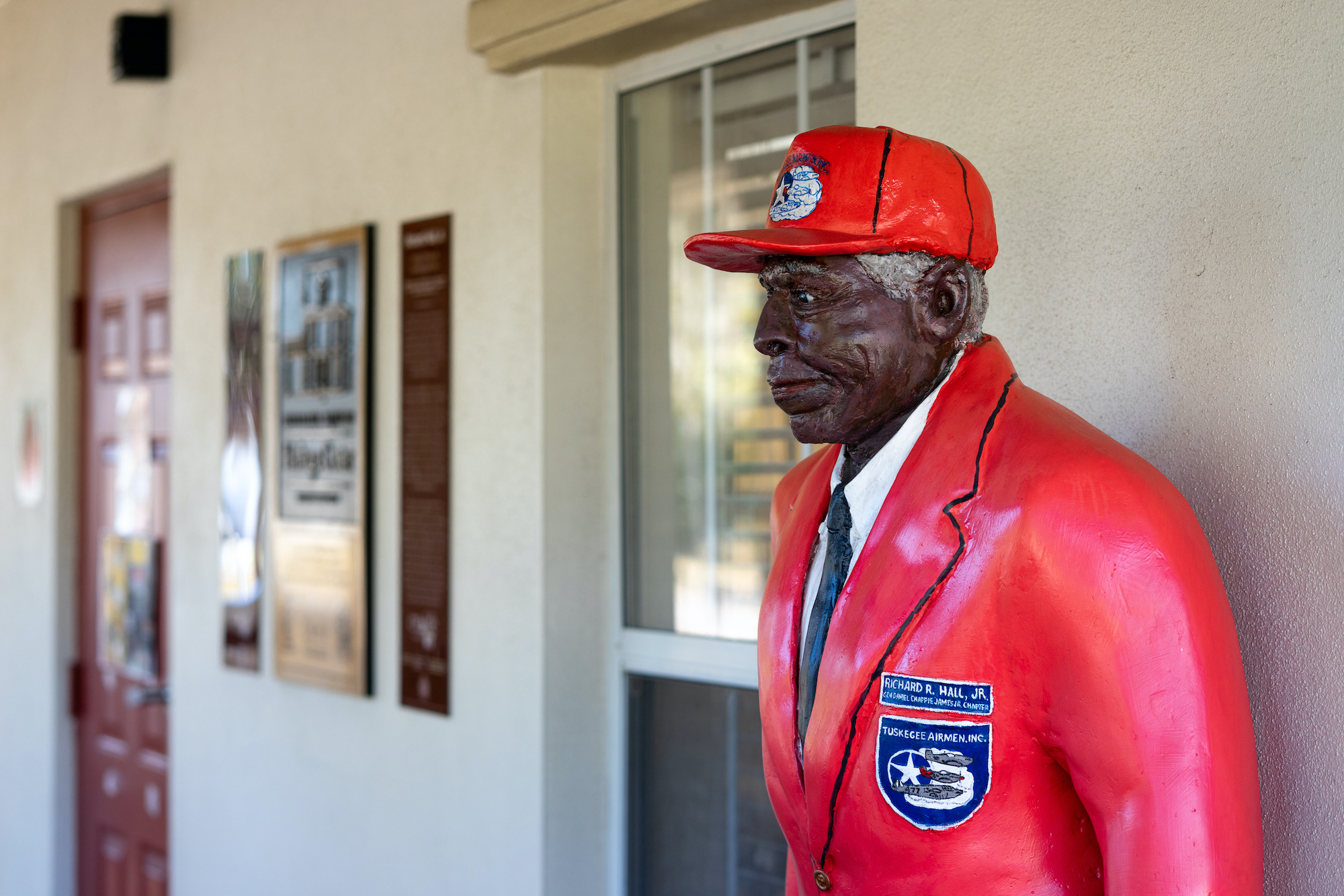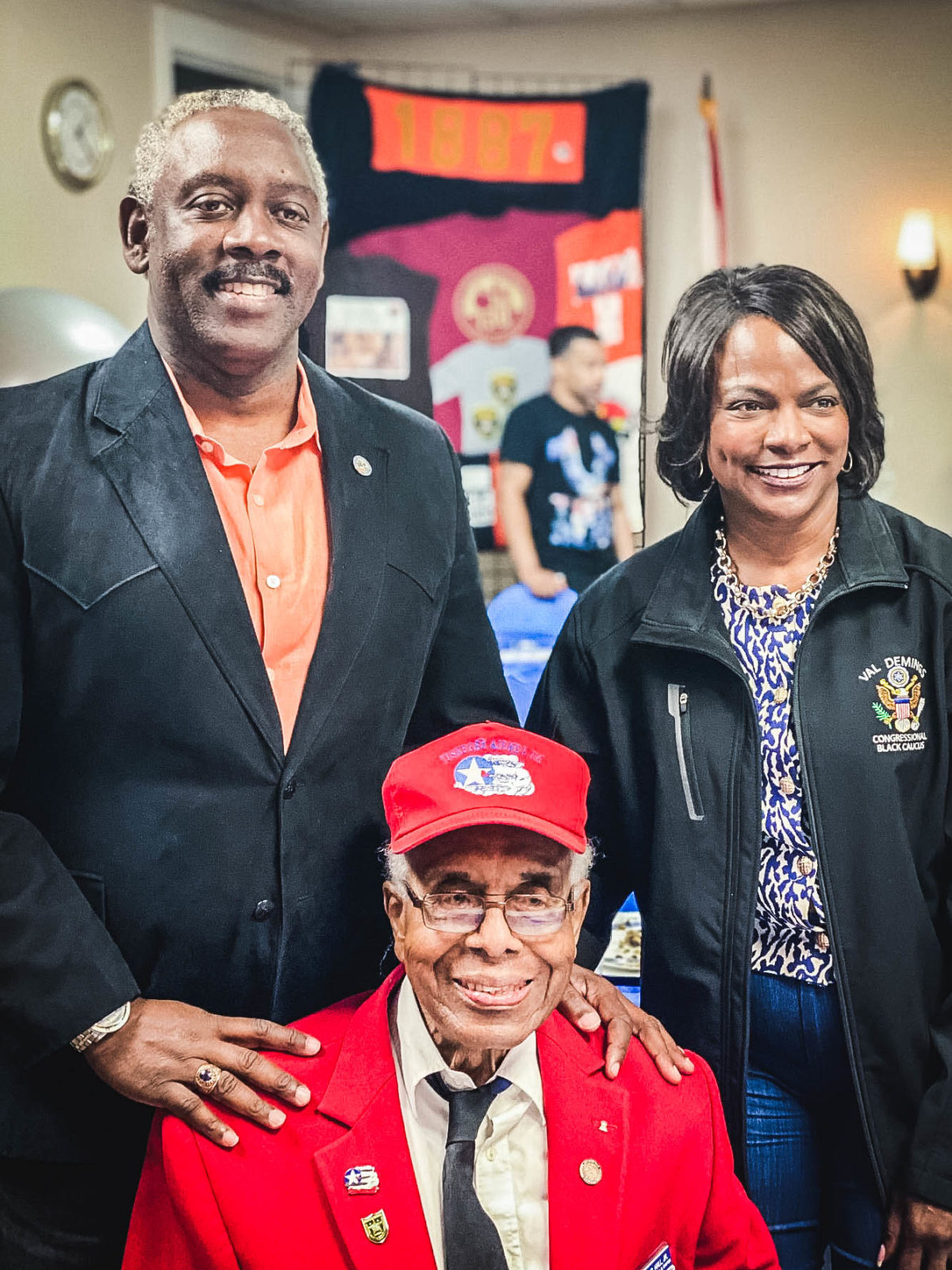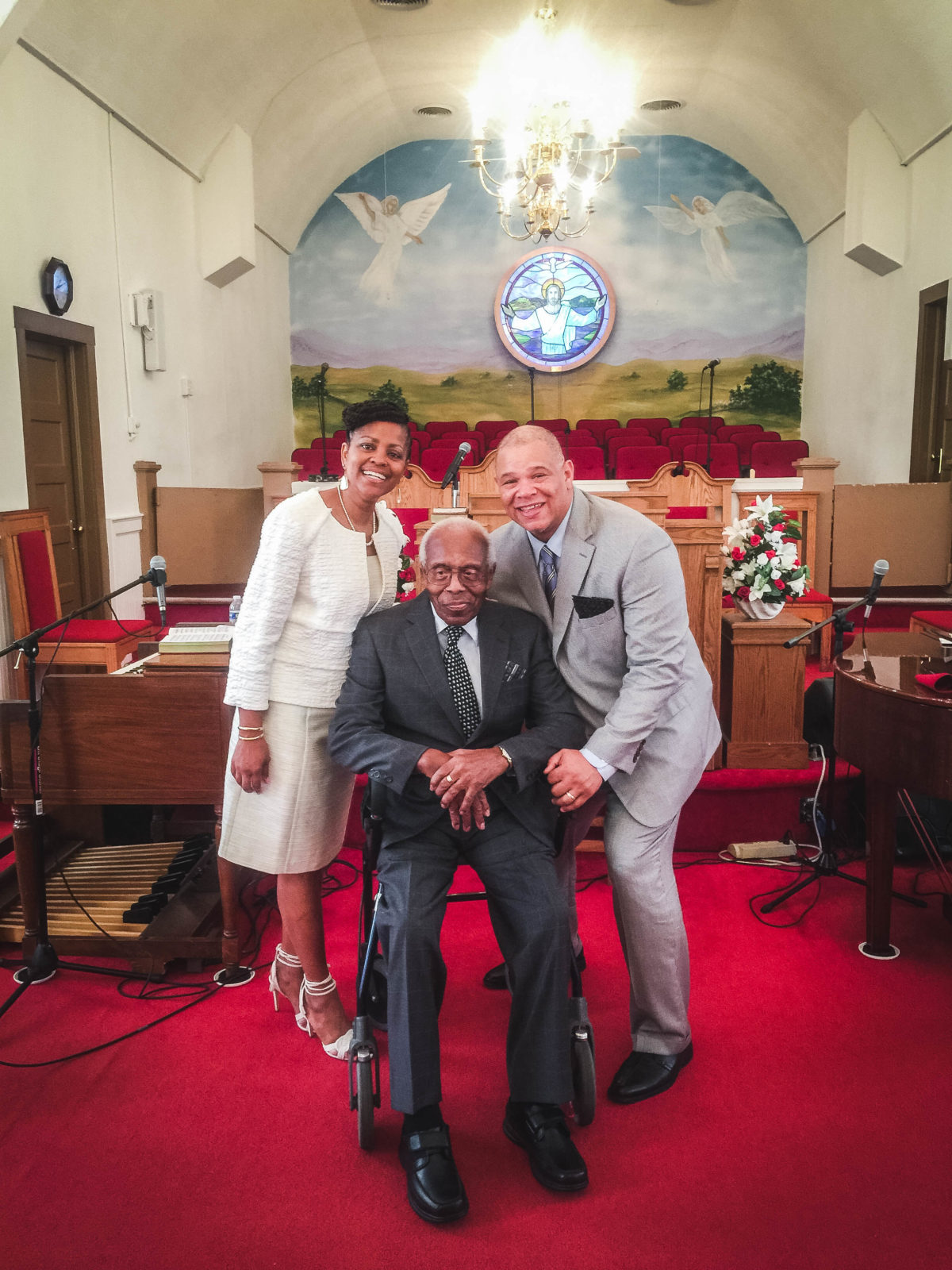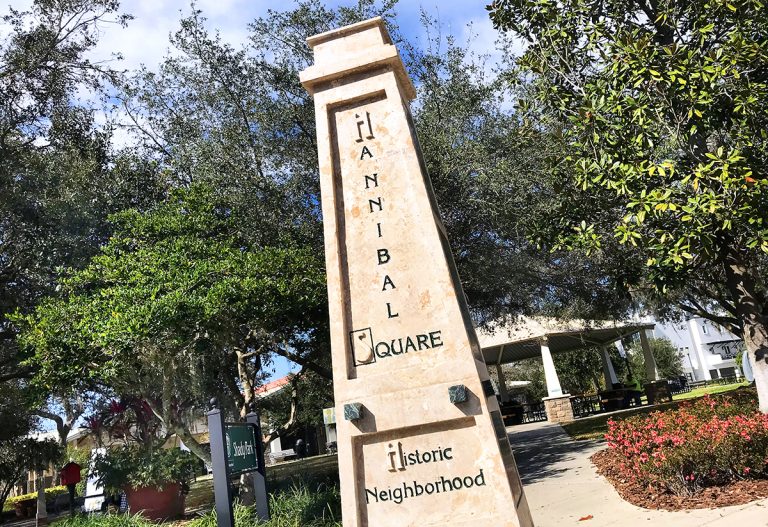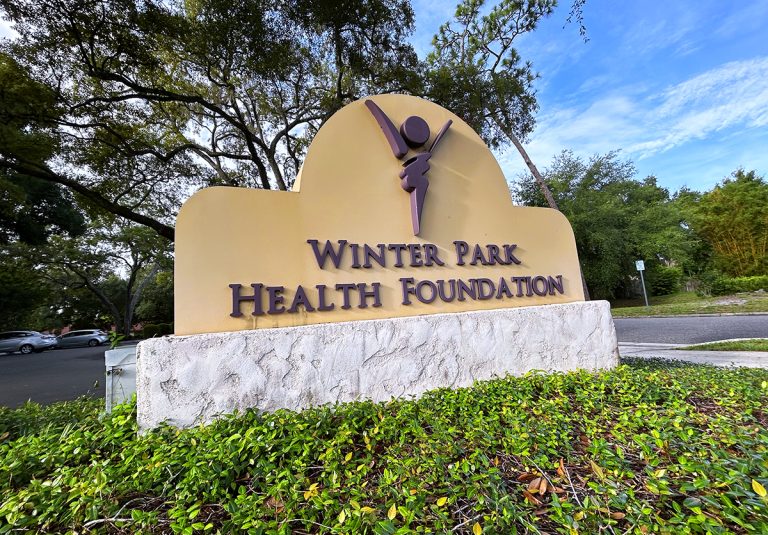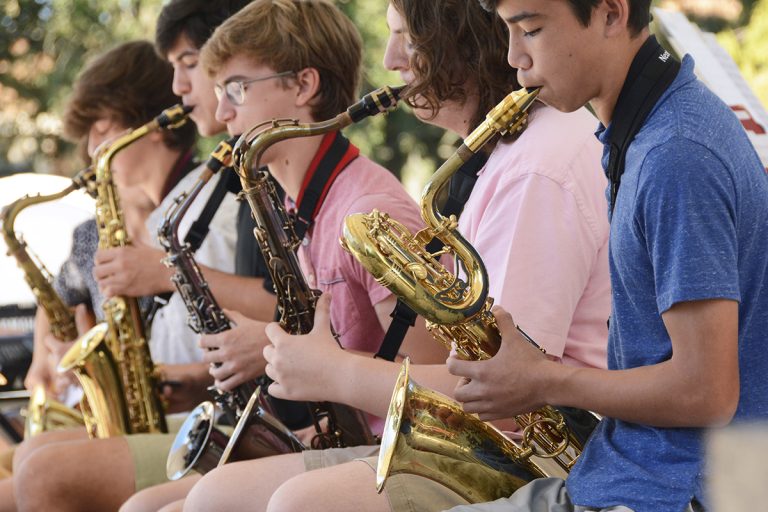A college football running back, mechanical instructor, 30-year veteran, original Tuskegee Airman —of all the jobs retired Chief Master Sgt. Richard Hall, Jr. worked throughout his life, one seemed his most important…
“I’m always working for the Mount, Pastor. I’m always working for the Mount.”
Rev. Dr. Weaver Blondin, Senior Pastor at Mount Moriah Missionary Baptist Church in Winter Park, remembers Hall as a great servant of the church, inviting guests who became new members and mentoring people.
“He was still witnessing, even in his older age,” Blondin said. “He never rested on his laurels.”
Hall was born in 1923 and died in late January, at the age of 97. A celebration of life was held on February 6, at Pineywood Cemetery. While he may be best known as one of the original Tuskegee Airmen, many in attendance described him as a pillar of the Winter Park community.
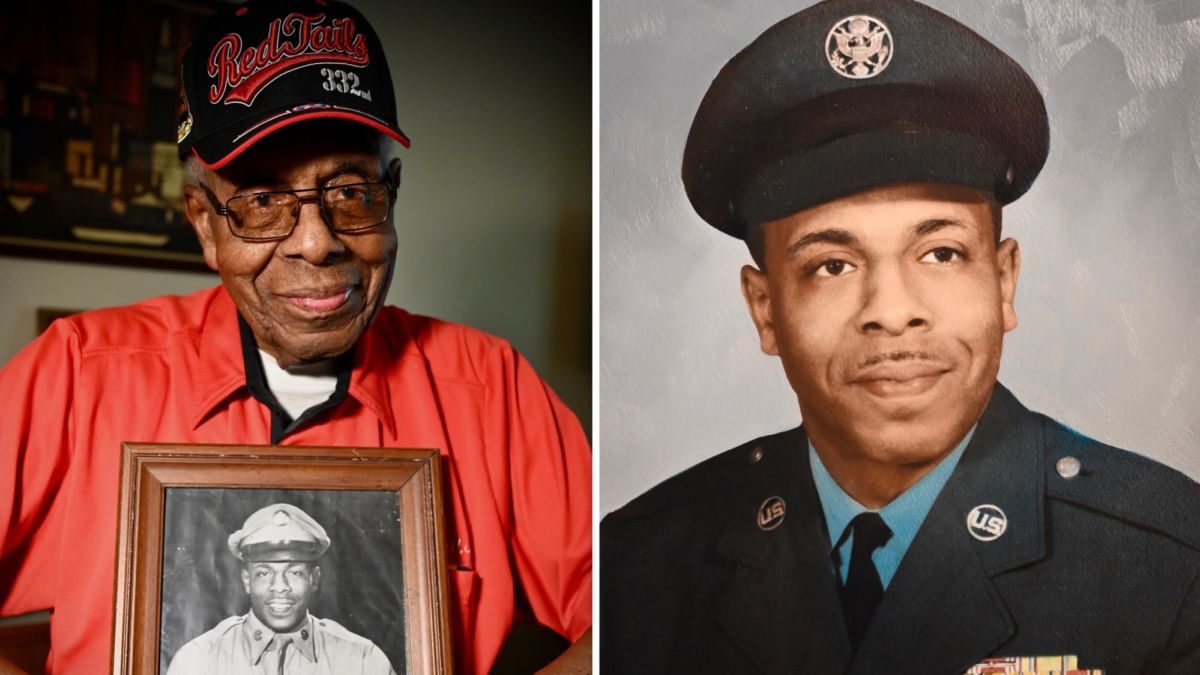
Hall has a great history in Winter Park. His parents moved here with him when he was less than a year old, and he grew up spending Sundays at Mount Moriah Missionary Baptist Church. After 30 years of military service, Hall moved back to his hometown and his home church, where he continued his job doing “God’s work.”
“He was invited to many official events—presidential stuff and all of the other travels,” Blondin said. “But what he was most proud of was the impact of his church on the community of Winter Park and that he had a part in that.”
Hall owned several rental properties in which he housed church members with no means to pay. He regularly performed acts of service like this without recognition. Notable acts like these inspired the construction of a life-size sculpture of Hall near the entrance of the Hannibal Square Heritage Center. Wearing a red jacket and cap, the sculpture of Hall nods to the Red Tail planes he helped maintain during World War II.
To say Hall’s life was adventurous would be an understatement. During his sophomore year of college at Xavier University, Hall was called up to active military duty and trained as an airplane mechanic. He joined a segregated, all-Black unit, later known as the Tuskegee Airmen. He fought in Europe, North Africa, and the South Pacific during World War II, and then was stationed in Japan. From Japan, Hall was sent to South Korea to maintain and repair fighter planes and jets during the Korean Conflict. He later fought in Vietnam. Hall joked that he traveled to every country in South America to train local military personnel on U.S. jets and planes.
At the end of his life, the walls of his Winter Park home were covered with pictures from his life. A scrapbook of sorts, a testament to the historical life he lived.
According to those who knew him, Hall was eager to share his knowledge and stories with the rest of the world. One of Blondin’s favorite memories are the visits he and his father made to Hall’s home.
“The two together were a sight to see… one a history buff, and the other was history. He had a great impact on my dad,” Blondin shared. “Brother Hall shared all his stories, and my dad would just sit, soak it all in, and ask questions.”
As a young child, Hall attended Winter Park Elementary School, which was located where the current Community Center sits on New England Avenue. At that point, the city was mostly dirt roads near orange groves.
After elementary school, Hall was sent to live at Hungerford Vocational School in Eatonville, which was a boarding school at the time. His athletic prowess earned him a full athletic scholarship to Xavier University, where he was a running back on the football team. Hall joked that’s why his legs were so bad.
“Yeah, I got scars all over them,” Hall said in his recorded oral history. “back in those days we used old quilts… and when you’re a running back, they try to get you to stumble.”
After being called up to active duty with the U.S. military, Hall trained as a flight engineer at Chanute Airforce Base in eastern Illinois. That’s where he was assigned to the unit in the U.S. Army Air Corps, a precursor of the U.S. Air Force. Those first Black military aviators became the 332nd Fighter Group, later known as the Tuskegee Airmen. In addition to some 1,000 pilots, the Tuskegee program trained nearly 14,000 navigators, bombardiers, instructors, aircraft and engine mechanics, control tower operators and other maintenance and support staff. Hall maintained engines for the “Red Tails,” P-51s nicknamed for the scarlet markings on their tails.
“I worked on P-40, P-47, B-25,” Hall said in his oral history. “And each time you changed aircraft, you go to school again.”
The World War II Tuskegee Airmen legacy includes destroying or damaging 36 German planes in the air and 237 on the ground, as well as nearly 1,000 rail cars and transport vehicles and a German destroyer. Hollywood has made two feature films about them, and countless books and articles have been written.
Blondin recalled that Hall told him he was glad they made the movies, but they weren’t completely accurate. “He said it was a lot more segregated than even the movie showed,” Blondin said. “But they definitely made a positive impact.”
After fighting in three wars, Hall returned to Illinois, where he became an instructor, training other flight engineers. The Air Force later sent him to the country’s various allies across South America to instruct mechanics there. Upon his retirement, Hall returned to the place closest to his heart—Winter Park.
In 2007, the 300 surviving members of the 332nd, including Hall, received the Congressional Gold Medal from President George W. Bush. The award is the highest honor bestowed by Congress as an expression of national appreciation. Two years later, the entire unit was invited to attend the inauguration of President Barack Obama, the country’s first African American president. He also become a local celebrity, attending parades in Eatonville and taking pictures with local officials like Orange County Mayor Jerry Demings and his wife, Rep. Val Demings.
“His impact in Winter Park was profound,” Blondin said several times. “Everyone wanted to take a picture of him. He was a lover of people. I have to say that from the first time I met him, he was the nicest man… I never saw him get angry, and I was around him a lot.”
“This has been a tough [time] for our church,” Blondin continued. “He impacted my life as an older man with a lot of wisdom. I sat with him many days and just listened to him talk.”
Hall’s remembrance service is available to watch on YouTube.
In addition to his oral history, which can be accessed here, the Winter Park Public Library announced it is curating and housing The Richard Hall Repository of Florida Tuskegee Airmen memorabilia collection, to keep the legacy of the Tuskegee Airmen and their role in history alive. It will be housed in the library’s new building, currently under construction near the Hannibal Square neighborhood where Hall grew up.
